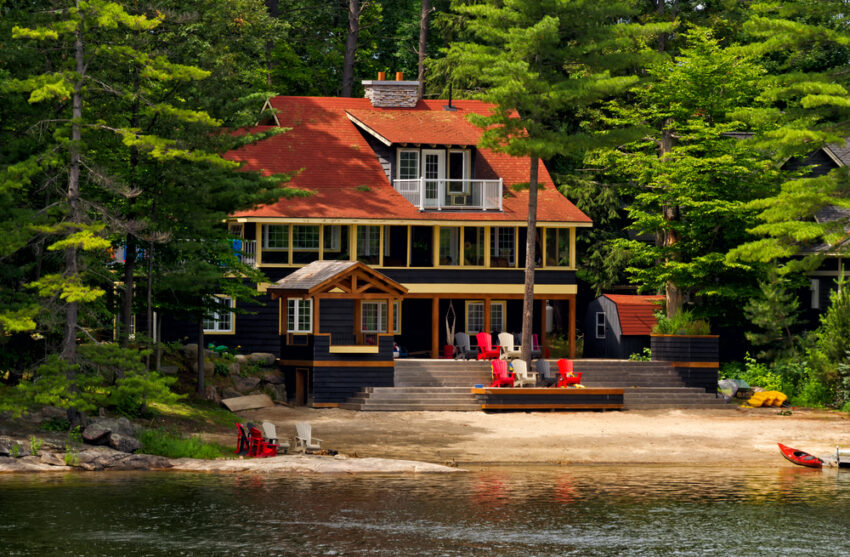A proposed bylaw to regulate short-term rental properties in Haliburton County’s four municipalities puts owners at a disadvantage to other commercial accommodation providers.
Algonquin Highlands resident Jacqueline Baptist is a short-term rental (STR) operator who rents out her family’s cottage. To be able to afford that cottage, she told county council during its Jan. 10 meeting that it’s necessary to rent it out through the Airbnb platform.
She said she’s concerned the amended bylaw as proposed has significant liabilities for the county.
Costs to enforce the bylaw would be beyond revenue collected in a climate of decreased bookings and more competition. The proposed municipal accommodation tax (MAT) creates a lack of parity between STRs and other commercial accommodation businesses.
STR operators pay personal income tax on what’s made from rentals, property tax, and the sales taxes.
That parity deficit is compounded by the requirements that STR operators buy their shoreline road allowance and to undergo a septic system inspection every three years.
There are certain security concerns as well. The bylaw’s exterior signage requirement invites break-ins and theft when the property isn’t occupied.
Baptist said STRs, which have become an estimated 77% of accommodations in the county, contribute to the local economy and provide employment.
The accommodation tax is a revenue generator for the four lower-tier municipalities in a difficult economy.
Baptist said the average host in Haliburton County isn’t an investor or a “fat cat.” The average income from rentals a year is about $9,000 for less than 50 nights rented annually. Hardly the trappings of a lucrative investment and far less than the $82,476 a year estimated by the county.
Startup costs and inspection fees are expensive hurdles for a host who is making $9,000 a year.
As per an informal social media survey, Baptist said she’s found that 63% of respondents offer the home they own for rent, which 10% offer a separate space in the home in which they live.
STR listings increased over the COVID-19 pandemic, and that resulted in a 300% jump in the tourism accommodation unit capacity in the county.
Property owners and county officials can agree there’s a need for the STR industry to be regulated and safe, she said. The bad apple STR hosts are known by the complaints against them. Existing bylaws should be enforced against those operators.
Baptist recommended a phased-in approach to implementing STR regulation. The first year will see STRs registered and the county can monitor problem properties and enforce existing bylaws.
In the second year, public consultation will be conducted on the proposed bylaw and the county can reconsider such cumbersome aspects of it like shoreline road allowance purchases.

